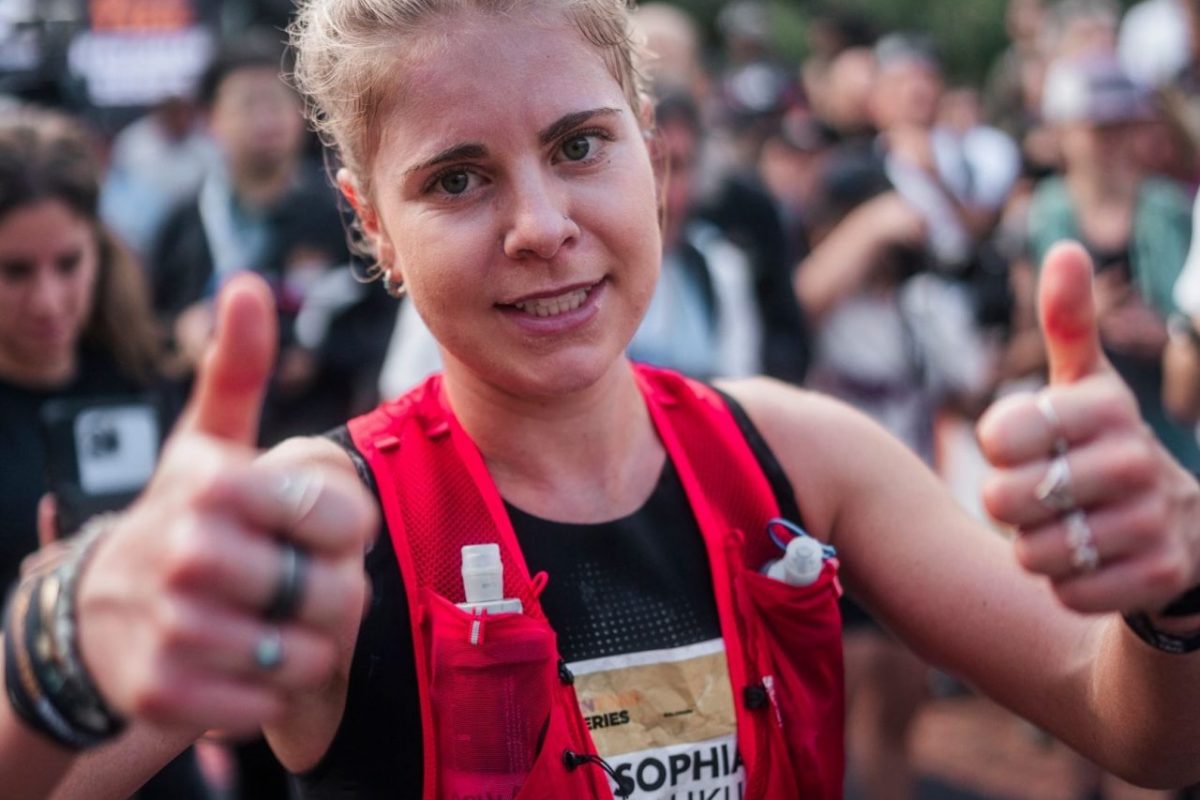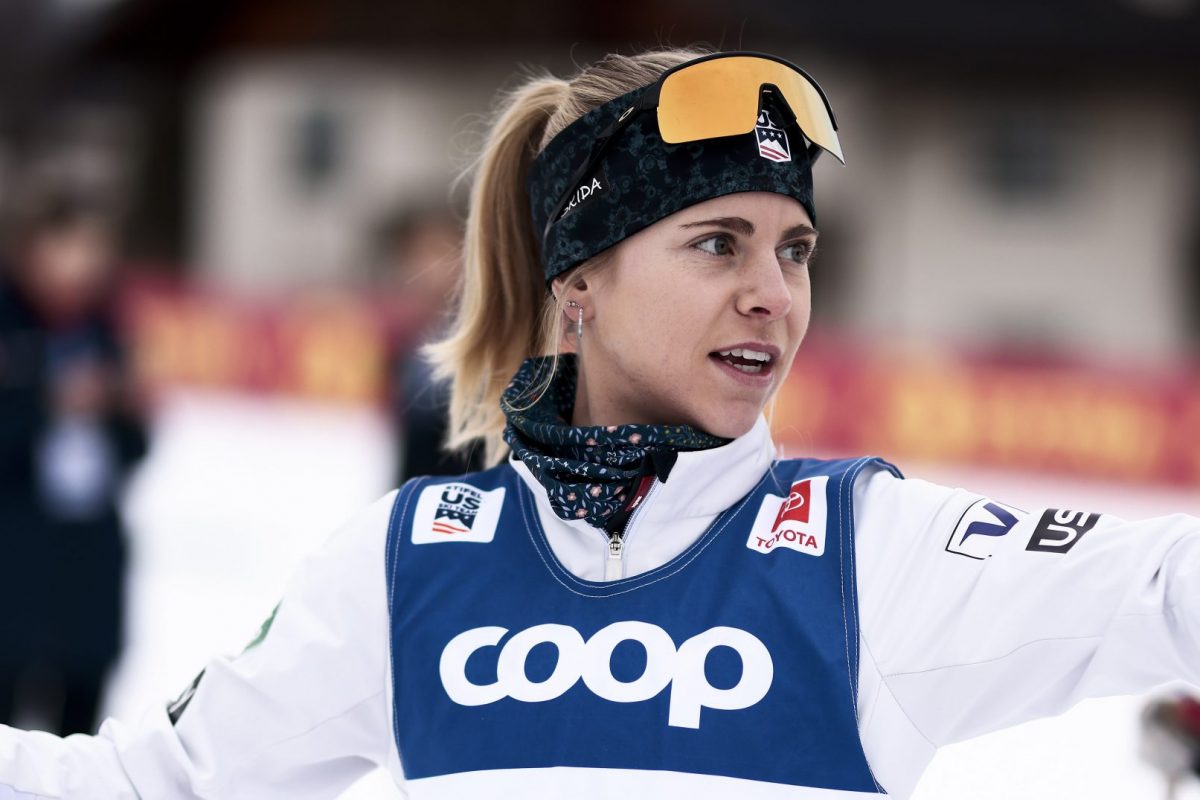With the Vancouver World Cups just a few days away, the US and Canadian ski teams are preparing to start the next phase of the international racing season. The highlight, of course, is the World Championships, scheduled for mid-February in the Czech Republic. And while the athletes, coaches, and service personnel are all looking forward at this point, it can be useful to examine the past several months of racing.
Overall, it was somewhat of a rocky start for the US team. There were certainly a number of bright spots, but over the last several years, expectations have been raised and the sporadic “solid” World Cup performance is no longer cause for celebration. By New Year’s last season, Kikkan Randall has already become the first American woman to ever win a World Cup race, Kris Freeman had a 5th place under his belt, his best result in some time, and Andy Newell headed back to the States with both a 4th and a 7th.
This season has been a different story. Freeman has demonstrated that he still has what it takes to consistently crack the top 30, but has not shown the extra gear needed to battle for the podium. His best result thus far? A 16th in Kuusamo. Top 20 is nothing to scoff at on the highly competitive World Cup circuit, but again, the bar has been raised.
The sprinters have also struggled to match their early season performances of last season. Randall answered questions regarding her fitness following serious health issues last spring by finishing an impressive 23rd in a 10km classic, her best-ever World Cup distance result. But top sprinting results have eluded her – she has failed to qualify for the heats in several events, and when she did qualify, she endured a string of bad luck crashes, resulting in early exits.
Torin Koos has also struggled to qualify, often sitting just outside the-30, while Andy Newell has shown his usual impressive qualification speed, but has been plagued by falls in the heats and has not been able to reach the A-Finals.
But while results have been disappointing, there have been some significant highlights. Randall’s 23rd demonstrated that she has the potential to develop into a legitimate distance threat. And given the health issues, it is positive that she is even competing. It is also important to recognize that sprinting is a rough sport. There is plenty of contact, and crashes happen. Some of the poor results can be chalked up to bad luck (though at some level, a skier can create his or her own luck – certain athletes consistently make it to the top of the podium in sprint events, demonstrating that consistency is possible).
On the men’s side, Newell’s extremely impressive qualifying times show that he has not lost anything. He is still one of the fastest skiers in the world and he and Koos teamed up to finish 4th in the Team Sprint just before Christmas, the best US result ever in that event.
Freeman’s ability to crack the top-30 without purportedly having a “great” race is also a positive sign. There is little room for error on the World Cup, and if he can put all the pieces together, a jump into the top-10, and possibly better, is not at all out of the question.
The US men also fielded a relay team, and have voiced a commitment to that event. The team is not currently competitive, but it is good to see the participation. Chris Cook skied the best distance race of his career the week after the relay, and continues to show overall improvement.
Finally, this is a World Championship season, and November and December World Cups will be quickly forgotten if any one of these athletes are in contention for a medal. A number of other top World Cup skiers from previous seasons have not been in top form in the early going, with the focus on Liberec. And teams like Norway can easily absorb sub-par performances from top athletes – there is always someone else to step in and reach the podium. This is certainly not the case for the US – the lack of depth is not a secret, and if several skiers are not firing on all cylinders, there is no one else to pick up the slack.
It is worth taking a quick look at US Nationals as well. The challenges posed by the weather have been much documented and not worth rehashing here. Koos and Newell skipped the events in order to train, while Freeman, Cook and Randall all competed, performing exceptionally well. Freeman won both men’s races and Randall added a gold and silver to her trophy case. So cheers all around? Not quite. The performances of the World Cup athletes served to highlight the gap between the top few skiers in the country and the rest of the field. Randall and Cook absolutely dominated the sprint qualification, winning by vast margins, while Freeman’s fitness level was clearly the deciding factor as he skied away in every heat. Randall too made short work of the competition in the heats. Freeman won the 10k by 50 seconds. At this point there is not a second tier of skiers who appear poised to make the jump to the next level (top 30 World Cup skier).
Again, there is a silver lining – the US Development team is large and very young. The vision is long-term, and there is clearly significant potential. And the US B-Team does not have a monopoly on young talent – the U23 field is extremely competitive with many non-USST skiers in the mix.
Though in terms of the World Championships, and most likely, next year’s Olympics, we are looking at the big four of Randall, Freeman, Newell and Koos, with possibly Cook in the mix, for any real chance at medals.
Canada, by all measures, had a highly successful first two months on the World Cup. Athletes traveled to Europe later than their US counterparts, but quickly acclimated and raced very fast. Ivan Babikov finished 8th in his 08-09 World Cup debut, Stefan Kuhn turned in a career-best 15th, Devon Kershaw placed 5th in Kuusamo, and Renner 9th in Davos, her best result since 2006. And all of this was with top sprinter Chandra Crawford out of action with an injury.
The Canadian Team continued to excel during the Tour de Ski. Renner skied extremely consistently, posting 4 top-15 results and finished within the top 23 in every race, and ended the Tour an impressive 15th overall. She has lacked her top sprinting gear this season – she qualified for the heats in two of three starts, but was never in a position to advance out of the quarterfinals.
Kershaw completed the Tour for the first time in three tries, and was sitting in 7th when he was set back by a cold virus. He did reach the podium for the first time in a World Cup distance event, and held on to a 21st overall in the Tour. His performance locked up a spot in the Red Group for the upcoming portion of the season. Strong performances in both sprint and distance races have made Devon a threat in any race he starts. A little more consistency and some better luck on the health front could make him one of the top all around skiers in the world.
Babikov also skied well in the Tour. He sprinted poorly as is his wont, but fared well in the distance events. The highlight of his season came in the final stage, which he won despite battling the same cold that hit Kershaw. George Gray also performed well, turning in a career best 9th, and scoring World Cup points in four of eight starts. He was forced out of the Tour de Ski due to illness, sacrificing some of those points.
And with that, it is time to look ahead. There is plenty of racing still to be done. World Championship teams have yet to be announced, and the upcoming races in Whistler will play a big role in those selections. Short of medals and championships, athletics are very much “what have you done for me lately.” Strong results moving forward will quickly erase the memory of disappointment, and yesterday’s triumphs will fade away in the face of poor performance. So congratulations to those who ultimately got it done in the early season, a pat on the back to those who gave it their all, and on to Whistler!

Topher Sabot
Topher Sabot is the editor of FasterSkier.



